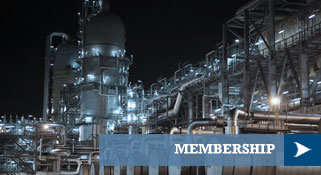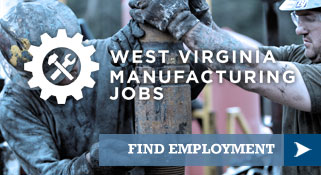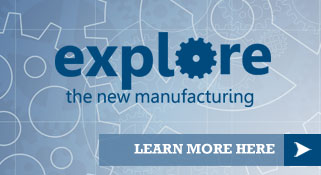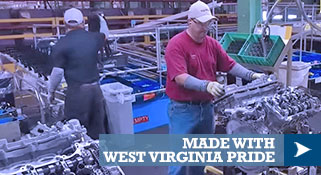How Andeavor Is Helping Clear the Air in Salt Lake City
As a member of several communities across the western United States, it’s our business at Andeavor to provide the fuel and foundational products that keep people and the economy moving. We also focus on keeping these communities clean—after all, they’re our homes, too. So, we’re continually evaluating and investing in technology and systems that support safe, reliable and clean operations. By doing this, we help protect and preserve the environment, which is good for everyone.
One example is at our Salt Lake City Refinery. Recently, we installed a wet gas scrubber, which is a highly efficient air pollution control device. Outside the Refinery, it appears as a tall silver tower that emits a billowy white water vapor. We’ve produced a short video that helps explain how it works and why it’s a significant addition to our facility.
Utilizing this best-in-class technology is particularly important to Salt Lake City because the area is surrounded by mountains and experiences winter inversions, a unique weather condition that can trap emissions lower to the ground. The wet gas scrubber cleans the air from our refining processes by using a water mist spray to capture sulfur and dust particles. Instead of being released into the air, these particles stay in the Refinery’s system for further treatment and recovery. The cloud that leaves the scrubber’s stack is heated water in the form of vapor—simply put, it’s steam.
The wet gas scrubber reduces the Refinery’s particulate emissions to virtually zero, while sulfur dioxide and nitrogen oxide levels are cut by 95 percent and 60 percent, respectively, over pre-scrubber levels.
Installing the wet gas scrubber is just one example of the investments we’ve made at our Salt Lake City Refinery over the past few years. In addition, we are well underway on another important project that will help improve air quality in the region by allowing us to produce lower sulfur Tier 3 gasoline for our customers.
Across our refining system, we use and focus on continually improving procedures, programs, tools and systems that not only help us comply with existing regulations, but allow us to reduce our environmental footprint. In fact, we achieved a 17 percent reduction in all air emissions from our facilities from 2014 to 2016.
At Andeavor, we believe that exceptional impacts result from thoughtful improvements every day. It’s our promise to deliver ever-greater value for all of our stakeholders, including protecting the health and safety of our people, focusing on environmental sustainability and investing in the communities where we live and work.
The post How Andeavor Is Helping Clear the Air in Salt Lake City appeared first on Shopfloor.
Read more: How Andeavor Is Helping Clear the Air in Salt Lake City
Samsung Expanding South Carolina Manufacturing Production In Plan To Create 1,000 Jobs By 2020
Samsung announced last June that it is investing $380 million to manufacture home appliances at its new 450,000-square-foot facility in South Carolina, planning to create 1,000 new manufacturing jobs by 2020.
The company announced this week that it is making progress on that plan, officially launching a second production line of washing machines at the facility:
South Korean-based appliance manufacturer Samsung announced the expansion of its production footprint in South Carolina on Monday, making progress on a plan to create nearly 1,000 jobs in the state by 2020.
The company officially launched a new line of top-loading washing machines at its facility in Newberry. That’s in addition to a line of front-loading washing machines that the South Korean electronics company began making at the plant earlier this year.
The expansion comes less than a year after Samsung’s June announcement that it would invest $380 million in South Carolina to manufacture home appliances, creating an estimated 950 jobs by 2020. So far, company officials say that they’ve hired about 650 employees who are now working on the two washing machine lines at a 450,000-square-foot plant.
According to the Associated Press, the plant is utilizing automation to boost productivity and efficiency, which requires a skilled workforce to operate and repair. Nearly 100 Samsung employees are on-site training the new workers in South Carolina how to use the facility’s technology.
“If something goes awry, they show us how to fix it,” Samsung plant manager Tony Fraley said. “They show us how to troubleshoot it.”
Samsung is also working with the University of South Carolina and Clemson University to make the Newberry facility a hub for research and development, and is considering adding more production lines to the plant in the future.
The post Samsung Expanding South Carolina Manufacturing Production In Plan To Create 1,000 Jobs By 2020 appeared first on Shopfloor.
Manufacturers Welcome Strong Congressional Support for ISDS
Manufacturers welcomed today strong bicameral support for the maintenance of Investor-State Dispute Settlement (ISDS) provisions in an updated NAFTA to ensure that manufacturers and other businesses in the United States have remedies for unfair and discriminatory treatment overseas. In a letter organized by U.S. Rep. David Schweikert (R-AZ), more than 100 members of the House and Senate urged President Trump to include a strong ISDS mechanism as part of any updated agreement.
“Manufacturers support a stronger, modernized NAFTA so that we can keep growing and thriving here in America,” said NAM Vice President for International Economic Affairs Linda Dempsey. “Investment rules, enforced through ISDS, are a vital recourse against unfair treatment against manufacturers in America and must continue to be a priority in the ongoing NAFTA negotiations as well as in future agreements. Manufacturers and other businesses in the United States have successfully used ISDS to address discrimination, the theft of U.S investment property and forced localization measures designed to shift jobs outside the United States. As Congressman Schweikert and members from both the House and Senate have recognized, the continued inclusion of ISDS in NAFTA is vital to ensure that investment overseas continues to support U.S. exports, manufacturing and jobs here in the United States.”
The letter was also led by Ways and Means Committee Chairman Kevin Brady (R-TX), Ways and Means Trade Subcommittee Chairman Dave Reichert (R-WA), and Senate Finance Committee Chairman Orrin Hatch (R-UT). In August, the NAM joined with more than 110 business associations to urge the inclusion of ISDS in an updated NAFTA and has developed this short video to explain the basics about ISDS. For more information, click here.
The post Manufacturers Welcome Strong Congressional Support for ISDS appeared first on Shopfloor.
Read more: Manufacturers Welcome Strong Congressional Support for ISDS
Volkswagen Investing $340M To Expand Tennessee Manufacturing Plant For New SUV Production
Manufacturers across the country continue to enjoy record-high optimism and are expanding at an exciting pace. New manufacturing job openings reached close to a record-high in February, and U.S. consumers’ confidence in the economy is reaching record highs. Manufacturers across the country – like Riviana Foods in Tennessee or United Tool and Mold in South Carolina – are investing back into their businesses and expanding.
Another manufacturing investment is coming to Tennessee as Volkswagen announced plans to invest $340 million into its manufacturing center in Chattanooga, Tennessee to add a new vehicle to its production line:
Volkswagen AG announced on Monday that it plans to invest $340 million to build a new sport utility vehicle at its Chattanooga, Tennessee, plant in the United States as demand surges for larger vehicles.
It will build a five-passenger SUV that will be branded as part of the company’s Atlas family. A concept version will be unveiled next week at the New York International Auto Show, the German carmaker said in a statement.
“We are not only committed to this market, we are committed to our U.S. manufacturing home in Chattanooga, Tennessee,” it said.
It’s not the first-time Volkswagen has made a big investment in Tennessee. The company announced in 2014 that it had passed over Mexico and instead planned to spend $900 million to double the Chattanooga facility’s workforce and expand production of a seven-seater SUV.
The facility employs over 3,000 workers.
The post Volkswagen Investing $340M To Expand Tennessee Manufacturing Plant For New SUV Production appeared first on Shopfloor.
Read more: Volkswagen Investing $340M To Expand Tennessee Manufacturing Plant For New SUV Production
Plastics Manufacturer JDS Technologies Investing $2.2M To Expand In Tennessee, Create 110 New Jobs
Manufacturers in Tennessee have been on a roll in 2018. Manufacturers like Riviana Foods, Volkswagen, DENSO, and Martin Technologies have invested millions to expand their facilities and create hundreds of new manufacturing jobs across Tennessee.
JDS Technologies, a plastics and rubber manufacturer based in Tennessee, is investing $2.2 million to open a second manufacturing facility in the state, planning to create 110 new jobs:
WINFIELD, Tenn.—When Jerry and Diane Slaven first saw an available 54,000-sq.-ft. facility in Scott County, Tenn., roughly 13 miles from their main manufacturing plant, they knew they had found a second location where their company, JDS Technologies Inc., could grow into.
“Before we even left the building we basically had a gentlemen’s agreement in place to first lease (then buy) the building,” said JDS Technologies President Jerry Slaven, also a co-founder of the business with his wife Diane. “The building was expandable out to 108,000 square feet, and with our growth that was extremely appealing.”
JDS Technologies ended up investing $2.2 million to establish that new manufacturing operation in the town of Winfield. It is there that the company plans to create roughly 110 new jobs over the next five years, nearly 90 of those in place by the end of 2018. It is the latest example of the rubber and plastics manufacturer’s ongoing growth odyssey.
Manufacturers in Tennessee account for 16.2 percent of the total output in the state, employing 11.5 percent of the workforce. Total output from manufacturing was $53.15 billion in 2016. In addition, there were 341,500 manufacturing employees in Tennessee in 2016, with an average annual compensation of $69,260 in 2016.
The post Plastics Manufacturer JDS Technologies Investing $2.2M To Expand In Tennessee, Create 110 New Jobs appeared first on Shopfloor.







